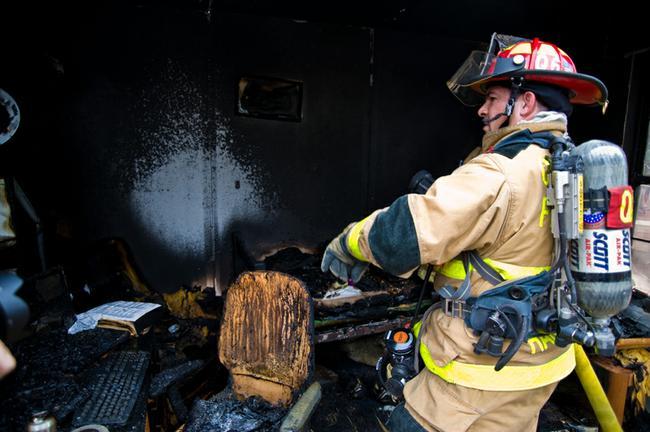
After a candle fire in 1999 led to the death of a student, MU began cracking down on fire safety.
Although campus fires are now at a low, MU and the Columbia Fire Department haven’t stopped their efforts to keep the campus safe.
By Sept. 16, each residence hall on campus will hold a fire drill. All residence halls on campus are required to have a drill at least once each semester.
“We also do a lot of education because one of the concerns in hall fire safety is complacency by residents,” Residential Academic Programs Associate Director Kristen Temple said. “It’s really important that you always evacuate and take alarms seriously.”
During the 2010-11 academic year, there were three fires on campus, two of which were cooking fires and one caused by a cigarette, Temple said.
Partially as an effort to reduce cigarette fires, MU limited where students would be able to smoke beginning this semester. There are now 15 designated spots on campus, with cigarette receptacles nearby. By 2014, MU intends to be a smoke-free campus.
Candles are also not allowed in residence halls, even if unlit — a rule created after a series of fires in 1999.
That year, a candle fire in Schurz Hall forced residents to evacuate at 7 a.m. Later that same semester, a student in an off-campus fraternity house died from a candle fire.
Because of the incidents, MU banned candles completely in residence halls.
“It really reinforced that we had made the right decision,” Temple said. “The feedback from the students was that they wanted to continue to allow candles, just that they couldn’t burn them.”
Temple said there hasn’t been a pattern of fires in residence halls.
“On occasions there have been time frames where a particular residence hall will have popcorn incidents, and every once in a while we will have a hall that has a series of false alarms,” she said.
Two of the most common causes of fires are microwave issues like burnt popcorn, Temple said.
“Some of kids are cooking for the first time,” Columbia Fire Department Lt. Shawn McCollom said. “They’ve never cooked before at home, and now they’re on their own. Cooking is always an issue.”
Each residence hall on campus is equipped with a sprinkler and fire alarm system. If a building on campus is evacuated, MU staff will send out an email or speak to the students about what caused them to leave their dorms.
From 2003 to 2006, fire departments nationwide received an average of 3,570 calls a year related to fires in college dormitories, sororities and fraternities, according to the CFD.
“We try to tell the students here’s what happened, here’s why you were evacuated,” Temple said. “We feel that if people have information, then they are going to be able to respond most effectively.”
According to the National Fire Protection Association, most college fires take place between the hours of 5 and 11 p.m. Cooking is second only to arson as the leading cause of college fires.
“The leading causes of fires in residence halls would usually be alcohol or drug impairment,” McCollom said. “Use some common sense, and pay attention to what you’re doing.”